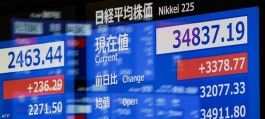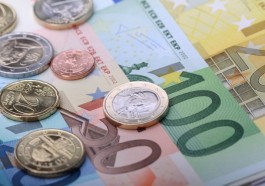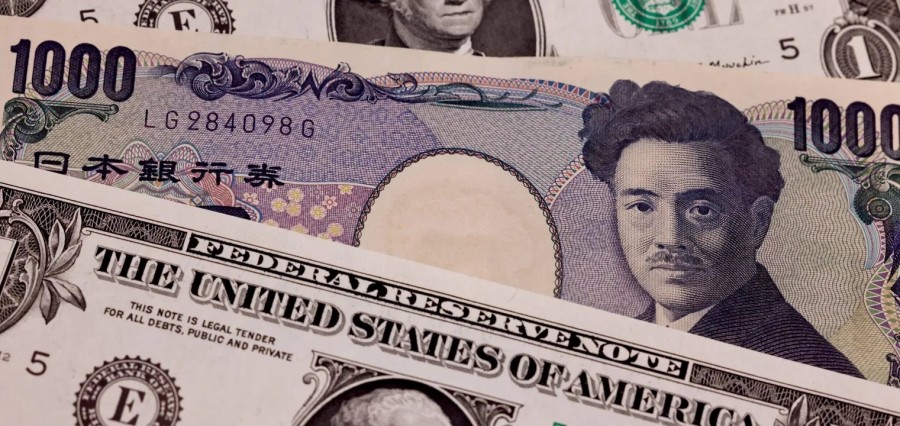The Japanese yen rose in Asian trading on Friday against a basket of major and minor currencies, extending its gains for the fourth consecutive day against the US dollar, reaching its highest level in nearly two weeks. It is poised to post a weekly gain, following sharp comments from Bank of Japan Governor Kazuo Ueda that strengthened the likelihood of a Japanese interest rate hike before the end of this year.
The currency's gains are also supported by the decline in the US dollar's foreign exchange market, in addition to the intensive efforts of Japan's opposition parties to unify their ranks and agree on a consensus candidate for prime minister, a move aimed at breaking the Liberal Democratic Party's dominance of the political scene.
Accordingly, the challenges facing Sanae Takaichi on her path to power are increasing, especially after the sudden withdrawal of the Komeito party, the traditional partner in the ruling coalition. This significantly weakens her chances and increases political uncertainty in Japan during this sensitive period.
Price overview
Japanese Yen Exchange Rate Today: The dollar fell against the yen by 0.35% to 149.90¥, the lowest since October 6, from today’s opening price of 150.42¥, and recorded a high of 150.43¥.
The yen ended Thursday's trading session up 0.4% against the dollar, its third straight gain, following comments from Kazuo Ueda.
Throughout this week's trading, which officially ends with today's settlement, the Japanese yen is currently up about 0.8% against the US dollar, on track for its second weekly gain in the past three weeks.
Bank of Japan Governor Ueda said in Washington on Thursday that the Japanese central bank remains prepared to raise its key interest rate if the likelihood of its growth and inflation forecasts being met increases.
Japanese interest
Following Ueda's comments, the probability of the Bank of Japan raising interest rates by a quarter percentage point at its October meeting rose from 25% to 35%.
The yen swap market indicated a 50% probability of a rate hike by December, up from 41% before Ueda's comments.
US dollar
The dollar index fell 0.15% on Friday, deepening its losses for the fourth consecutive session, hitting a two-week low of 98.16, reflecting the continued decline in the US currency against a basket of global currencies.
This decline comes amid renewed trade tensions between the United States and China, as well as softer comments from Federal Reserve officials that have increased the likelihood of two US interest rate cuts before the end of this year.
Political developments in Japan
Japan's political landscape is witnessing unprecedented turmoil following the resignation of Prime Minister Shigeru Ishiba on September 7, leaving his government in a caretaker capacity. Meanwhile, Sanae Takaichi, leader of the Liberal Democratic Party, faces a difficult challenge to become prime minister following the Komeito party's surprise withdrawal from the ruling coalition on October 10, which cost her party its parliamentary majority.
This development has opened the door for the opposition to unify its ranks, as the Constitutional Democratic Party, the largest opposition party, intends to ally with Komeito to support a consensus candidate, Yuichiro Tamaki, who has begun to emerge as a figure capable of leading a strong opposition bloc.
While the Liberal Democratic Party remains the largest bloc in parliament with 196 seats, its eroding influence and the growing strength of the opposition herald potential political change in the world's fourth-largest economy.
Opinions and analyses
A note issued by Bank of America stated that all eyes are on the runoff in the prime ministerial elections, which will be held in two stages, with the two candidates receiving the highest number of votes in the first round competing if neither achieves an absolute majority. The note explained that if the House of Representatives and the Senate choose different candidates, the House of Representatives' decision will take precedence.
The bank added that despite the opposition's difficulties in unifying its ranks, the three main opposition parties combined hold more seats than the Liberal Democratic Party, stressing the need to continue discussions on the positions of individual parties, including Komeito, to determine which party they will support in the crucial runoff.







































